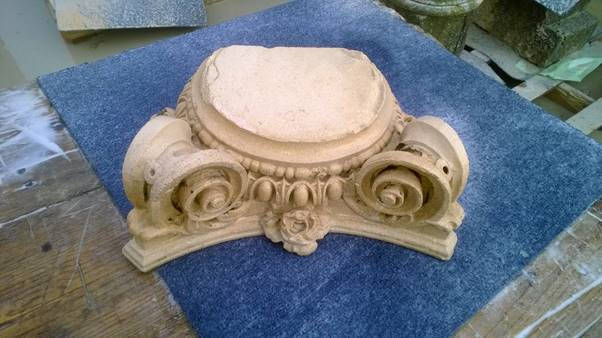DJ Cooper Building Conservation
Since 1989, customers have relied on DJ Cooper to clean a wide range of surfaces using a variety of methods.
This experience enables us to choose the most effective and gentle method needed to complete any given project cost effectively, with no damage to the substrate.
From  churches and listed buildings through to bus stops and private houses, contaminants have been removed from surfaces, some of which were extremely delicate, with perfect results and no damage.
As a small firm, you know that when you contact us, you will be speaking directly to someone with broad knowledge of old buildings and many years of experience in the construction industry.
If you would like to see samples for architect / client approval, just let us know. Whether your organisation is large or small, we are used to working alongside your architects, conservation officers and contractors to get the best possible result.
Our specialists clean:
- Masonry, Brickwork & Concrete
- Wood (Beams & Patios)
- Ferrous Metal & Some Non-Ferrous Metals
- Graffiti - promptly and carefully
- Smoke damage
- Paint
- Bird droppings
- Air pollution residues
- Organic matter (slime and moss)
- Grease

TORC System
For the gentle removal of Carbon Sulphation, Brittle Paints, Limescale and more
The TORC System is a complete stone cleaning system designed and sold exclusively by Stonehealth. It is an evolution of the Jos system that we first introduced to the market over 20 years ago.
How does it work?
The TORC system creates a gentle swirling vortex using a mixture of low air pressure, little water and a safe inert fine granulate.
The Torc Head is modularised into separate components which results in an efficient and gentle swirling vortex using even less water and granulate than the original Jos system.
The removable nozzle cone can easily be changed so that a larger cone can be used to clean large areas such as ashlar or a smaller nozzle cone can be used for more intricate detail such as an elaborate capital or rustications.
Different abrasive media are used in the TORC system; calcite, dolomite and unil, which is a by product of coal, allow fine-tuning of the cleaning method through varying hardness, grain shape and abrasion. By choosing the most appropriate abrasive medium to suit the substrate material, skilled use of the TORC system ensures the cleanest possible finish with the minimum possible damage to your property.
All Stonehealth approved aggregate contains less than 1% quartz with no other form of crystalline silica. It is completely safe for the environment & non-toxic.
With historic buildings in and around the town, some national monuments, some still in use, owned privately or by the local council, we often find ourselves called on in the Lydbrook area to ensure that when the grime from traffic, bird fouling, general day to day soiling or even graffiti is removed from a treasured building, there is no damage to the often delicate stonework beneath.
From removal of old paint for a domestic redecoration project, or the intricate cleaning of stone work in a cathedral using the poultice method, you will find that wherever you are in Lydbrook or Gloucestershire, you will get a quick response, highly competitive quotation and thorough cleaning from DJ Cooper. Our number is shown above, or if you prefer to send us an email, simply click in the header of any page.
